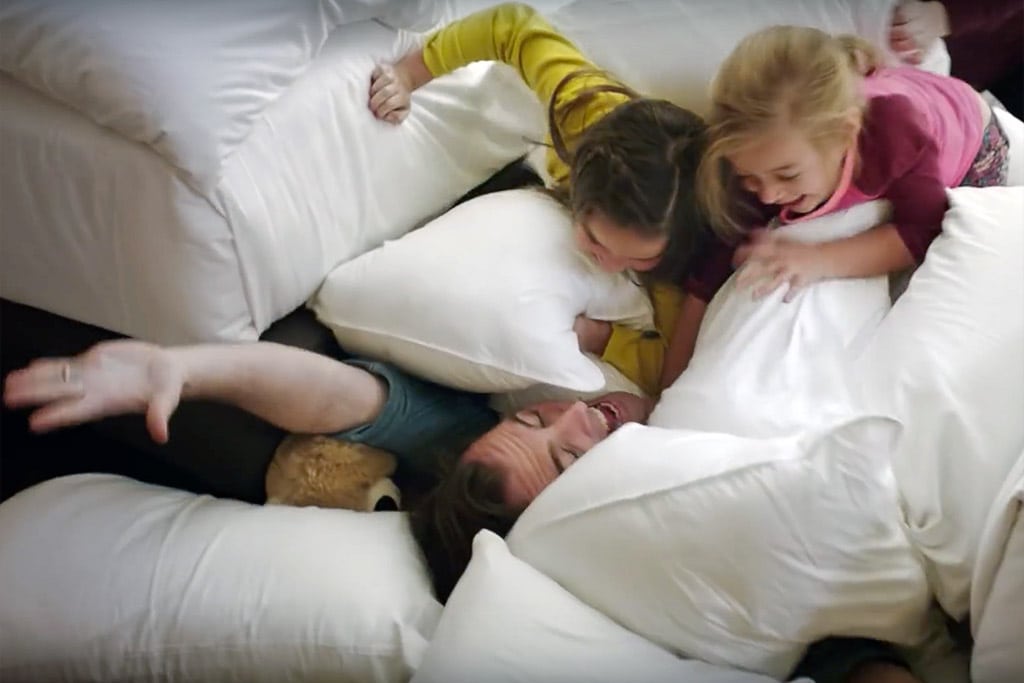Skift Take
On one hand, hotels can be impersonal giants that don't allow for individuality or local understanding. On the other they can be an escape from the mundane, where the cost of managing fun or freedom is outsourced to someone else.
Hyatt Regency announced on Tuesday a multimillion dollar integrated global marketing campaign “It’s Good Not to Be Home,” an idea that speaks as much to the perceived freedom of travel as the benefits of hotels over other options.
“It’s Good Not to Be Home” is largest campaign of its kind in Hyatt Regency’s 50-year history and is being carried out with advertising agency Pereira & O’Dell.
According to Hyatt’s Sandra Cordova Micek, its senior vice president global brands, and Maryam Banikarim, its CMO, the campaign was born out of conversations with and research on consumers who felt that, while at times being away from home is difficult, travel also affords the opportunities to discover and do new things.
“That insight seemed really intriguing and interesting to us, and it seemed really core and central to Regency,” Banikarim tells Skift.
The Hyatt Regency’s consumers are both leisure travelers and business travelers, Micek points out, and though the campaign is not targeting a particular demographic, the marketing efforts are designed to resonate with consumers as well as meeting planners. Among Hyatt’s seven active brands (Centric properties are not yet included in company filings), the 164 Regency properties on average rank beneath Park Hyatt, Andaz, Grand Hyatt, and Hyatt in terms of average daily rate.
“What we discovered is that the Hyatt Regency guest really does crave new connections,” Micek says. “That insight on connections and freedom to do new things transcended both our transient business as well as our group business.”
Yet because it is a global effort, certain aspects will be modified depending on the region, namely the tagline, which uses different words while evoking the same sentiment.
“In places like Mexico or India, culturally you wouldn’t use those words, because you wouldn’t want to imply that you want to be away from your family, so it’s ‘Making The Most Of Being Away From Home,’” Banikarim says.
Hyatt Regency will deliver its message through a series of TV, social, digital, and print media, a surprise and delight program, in-hotel activations and conference takeovers that will continue to roll out through November in both its domestic and international markets.
In the U.S., Regency is teaming up with Fast Company magazine and Comedy Central as part of its campaign efforts. Fast Company will host experiential sessions at select Hyatt Regency hotels, including a series of workshops and networking events designed to allow guests to make new connections and to remember why, sometimes, it’s good not to be home.
With Comedy Central partnership, the brand will follow a comedian on the road to the New York Comedy Festival, sponsored by Hyatt Gold Passport, to highlight the humorous situations that unfold as you travel.
Don’t Live Like a Local
While it’s difficult to differentiate the Hyatt Regency product from any other hotel product in the campaign, it does differentiate the hotel experience from rivals in the homesharing community that embrace a different approach to being away from home.
Peter Shankman, best-selling customer service author, questions whether the message will truly speak to the current customer base.
“It’s definitely a departure from the refined Hyatt brand we’ve known in past, no doubt,” Shankman says. “Don’t think it’ll help with their current audience. Might freak them out a bit.”
For the Regency campaign, it’s about the luxuries of not being at home for once. Whether it’s having the bed to yourself while traveling alone, or ordering extra pillows for an in-room pillow fight with the kids, to working out at the hotel gym when you want, the campaign positions the brand as a luxury option with a small ‘L,’ and the luxury it’s offering is escaping the everyday.
Yet the possibility for Hyatt’s campaign to be misinterpreted may outweigh what the brand is really trying to say.
“It’s an interesting take — on one hand, they’re saying that Hyatt will take care of you when you’re on the road, but on the other hand, which in my opinion, plays out stronger, they’re saying ‘home sucks, live in a hotel,'” Shankman says. “That’s a problem, because if you ask every business traveler what they want the most, it’s always ‘to go home.'”
Though Micek and Banikarim are not directly designating “It’s Good Not to Be Home” as a brand refresh, they say the idea adds a bit of difference to the Hyatt Regency and is what Micek calls an “overarching business strategy.”
“For us what it means to be brand led in a hospitality business is to be in lock step with your operations partner,” Banikarim. “The way you bring a brand to life is not just through a campaign, it is through the experience that people encounter when they walk into your space as well as through the other touchpoints they have with your brand.”
Have a confidential tip for Skift? Get in touch
Tags: hotels, hyatt, marketing
Photo credit: A still from the new Hyatt Regency campaign that encourages people to not behave like they would at home. Hyatt Hotels
